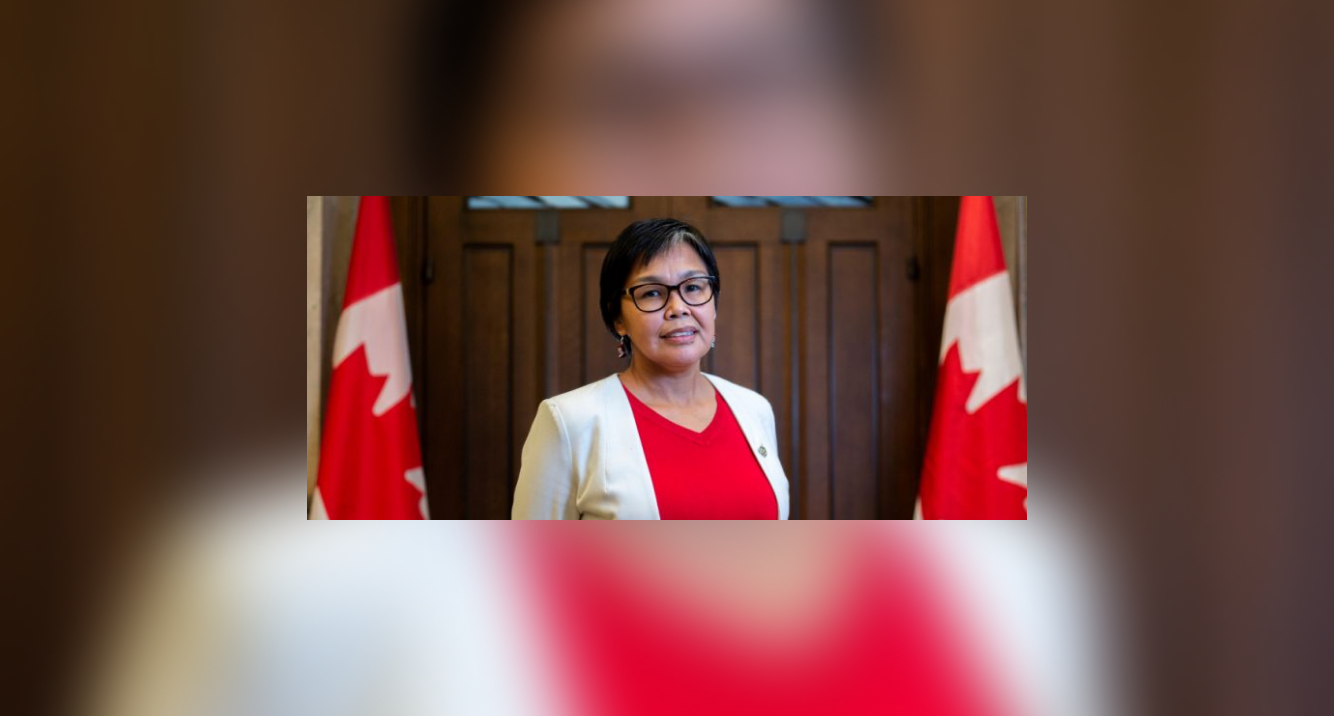She began her mission with her swearing-in, a virtual ceremony which was broadcast from Iqaluit on November 12, 2021. The ceremony opened with the lighting of a qulliq (a traditional seal-oil lamp) and was conducted almost entirely in Inuktitut, Idlout’s mother tongue. Inuk performances and traditions were also incorporated, such as throat singing and drum dancing.
“I wanted to share my pride in being Inuk and show how amazing our culture is,” said Idlout, who got permission to take her oath in both Inuktitut and English.
Idlout’s objectives for the ceremony were both symbolic and pragmatic: not only is she increasing the prevalence of Indigenous language and culture in Parliamentary proceedings, but she is ensuring that her constituents can understand as well.
Increasing the prevalence of Inuktitut in Parliamentary proceedings, and sharing Inuit culture with the rest of Canada, are two ways that Idlout is conveying a more complete narrative of Canadian culture.
Reflecting back to her time in law school at uOttawa, she recalls: “In our first days of classes, our professors … ensured that we all began an introductory understanding of Canada's more wholesome history, specifically including acknowledgment of being on unceded Algonguin Aneshnabek territory.”
This is how Idlout knew that she had chosen the right school.
The land acknowledgement is just the beginning, of course. Idlout notes that recognizing the laws and governance of the First Nations, Métis and Inuit “will be the deepest form of reconciliation” between Canada and its Indigenous populations. “There must be a shift in narrative when we speak about Inuit, First Nations and Metis. All too often the focus is on our deficits”.
She says that many indigenous people will largely remain in poverty and marginalized until they are respected and acknowledged for their expertise. She encourages all law students to find ways for the laws of the First Nations, Métis and Inuit to be regarded equally to those of the courts.
“We should not be limited to a bi-jural system. Indigenous legal traditions must be infused into this system to see significant improvements for First Nations, Métis and Inuit, all of whom want to be contributing to Canada's economy, justice and identity.”
Idlout also hopes that future law students will do more to respond to the Truth and Reconciliation Commission of Canada’s Calls to Action and the Calls for Justice by the Missing and Murdered Indigenous Women and Girls (MMIWG) Commission. Referring to several recent cases, she states that “Indigenous rights continue to be suppressed, infringed and ignored. In our legal education and pursuit, we must all do our part to engage with First Nations, Metis and Inuit to right the many wrongs that continue to exist today.”
Idlout continues to use the skills she gleaned at law school in her new role as an MP and hopes that by bringing indigenous culture and language to the forefront, the voices of other First Nations, Métis and Inuit communities will have more influence.
She emphasizes the importance of “hear[ing] the story from the perspectives of those impacted” and credits her legal education with her active listening skills, which she honed through the many cases she read and analyzed.
We are so proud of this alumna for having the courage and determination it takes to alter the way Parliament operates. We appreciate her commitment to make the Inuktitut language and culture more familiar and celebrated and wish her continued success.
